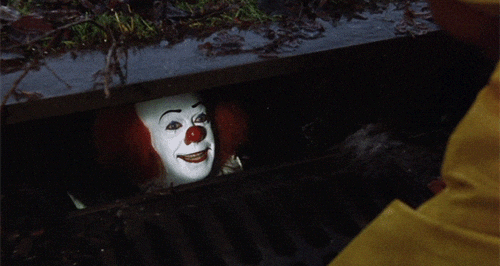From classics such as Alfred Hitchcock’s Psycho to modern horrors like Unfriended, the horror genre has long captured the interest of the public. Despite all the unexpected jump scares, agonising suspense and downright disturbing scenes, horror and thriller films are often highly anticipated and relentlessly enjoyed – so, why is it that we are so enamoured by the discomforting imagery that is portrayed in these films? The answer may lie within a variety of psychological reasons that link back to pure human nature.
It has been argued that there are three primary factors that make horror films so alluring. The first is tension, which is generated by suspense, terror, shock, mystery, and gore – tropes in which almost every horror film will utilise and combine. This tension is what causes viewers to remain intrigued, and fuels anticipation throughout the duration of the film. The second factor is relevance, meaning how relevant the fears being portrayed in the film are to the fears of the general public. An example of this could be Stephen King’s It playing on a world-renowned fear of clowns, or David Schmoeller’s Crawlspace playing on the common fears of intruders and claustrophobia. The third factor, despite its paradox to the second, is unrealism. This is based on our ability to distinguish between fact and fiction.

People often say that they love horror movies, not because they find them scary, but because of the thrill they experience throughout the film. Believe it or not, this might not just be an act to appear tough, but rather a truthful statement, mainly due to the fact that we are able to understand these films are not real. For many, the enjoyment of horror films comes not from experiencing a fearful situation in itself, but the ability to experience that fear within a controlled setting. With the acknowledgement that what we are seeing is no more than a fictitious depiction, we are able to experience the horrific scenes through a lens. This allows us to convert any real fear or panic into excitement, with an increase in adrenaline that leaves us on the edge of our seats, eagerly awaiting the next startling scene. However, this way of viewing horror movies can be overpowered by movies that are – or that claim to be – based on a true story. Regardless, in the end, our reward for enduring the horror is a euphoric sense of relief as the surviving characters return to normal and the bad guy, demon, or evil is defeated, and all three factors that lured us into the film have been met.
However, our interest in horror films may lie deeper than just enticement based on these factors. Some psychoanalysts believe that horror films, when done right, can tap into primal archetypes that have been buried in our collective subconscious. This means that fears we no longer have a reason for, such as shadows and dark rooms, can be depicted throughout these films and cause a triggering reaction based on what these fears mean in our primal cores – as these fears often signalled danger or vulnerability throughout human history. Again, this fear turns into relief once the film has ended and we are reminded that what we’ve seen was fictitious. On top of this, others believe that we may watch frightening films as a way to alleviate negative emotions and pent-up aggression, as the thrilling scenes allow us to experience an onslaught of sensations that may otherwise remain contained. Fun fact: this argument is also proposed as reasoning as to why people enjoy violent video games.

Perhaps this evidence could suggest that horror movies actually affect our mental states in a positive way. When the intensity of the emotions experienced are considered – the rushes of adrenaline and serotonin caused by excitement and relief, the recognition of what aspects of the film should be taken as fact vs fiction, and the release of negative or aggressive emotions – the positive effects of experiencing said mental stimulation far outweigh any possible short term negative outcomes (unless you’re like me, and are also still haunted by the second tape from Sinister). Throughout the duration of a horror film, the mind is exercised thoroughly in this way.
Ultimately, there is no single reason to explain our fascination with horror films, and everyone will have their own various reasoning behind their differing attitudes towards the genre. Regardless, it is still compelling to note the psychological impact horror movies hold on us, as well as the connections made between our minds, backed by human nature, and the impact this has on our feelings towards certain genres.
Featured image via Unsplash

